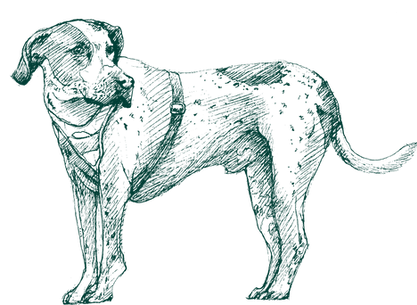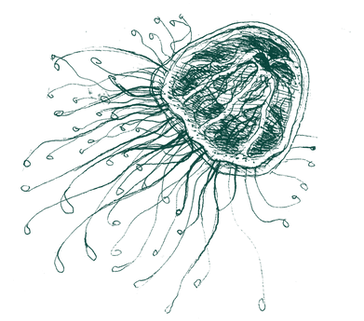ABOUT THE ANIMAL TURN
Placing animals at the centre of our thinking
There are often 'turns' in both the natural and social sciences where a particular subject matter or way of asking and answering questions becomes more apparent, more evident and (dare I say it?) more popular and pressing. While these turns are rarely a quick break they do point to profound, even if sometimes subtle, shifts in thinking.
Here we discuss 'the animal turn' and throughout the podcast try to grapple with some of the concepts, research and ways of thinking that are inspired by and simultaneously shape the contours of 'this turn'. I do not, however, have a clean definition for you regarding what 'the animal turn is', or how its boundaries should be defined - exploring these is, after all, one of the underlying projects of the podcast itself. Nonetheless, it is important to think through what it could mean and what better way to do this than by providing the definitions and discussions of others, those who have thought in a deeper, more prolonged way about it than I have. Below are a series of pull quotes from scholars grappling with what is meant by "the animal turn':

"After all, there are many ways of relating to the world, and the human ways constitute only a small subset. Taking this into account has potentially unsettling implications for any academic discipline. The “animal turn,” thus, brings along an alternative outlook on knowledge production that does not only include animals, but places them centre stage as key actors in the innumerable modes of being in, and making sense of, the world" - Page 6
"We should not forget that humananimal relations are inherently political, having profound material consequences for real individuals and real lives. In this light, perhaps the most important question is not what kind of knowledge we can produce in the “animal turn”, but what we do with this knowledge – that is; how we put it to work, and for whose benefit" (Pedersen, page 16)
"...the study of animals has become more respectable and more popular in many disciplines of the humanities and social sciences, but it is far from the recognized core of any of them. It remains marginal in most disciplines, and (not the same thing) it is often on the borderline between disciplines. This awkward location or set of locations is, however, the source of much of its appeal and power. Its very marginality allows the study of animals to challenge settled assumptions and relationships– to re-raise the largest issues–both within the community of scholars and in the larger society to which they and their subjects belong."
(Ritvo, On The Animal Turn)
"Animals are our closest physical and cultural point of connection with the non-human world, and human-animal relations are much older than history itself. Yet, while there has always been some degree of interest in the meaning of human relations with animals, it is only in the last two decades or so that this general interest has developed into an inter-disciplinary field of scholarship and enquiry."
(Wheeler and Williams - The Animals Turn)
"Theory has gone to the birds . . . and to apes, dogs, and horses"
- Weil, 2010

ABOUT THE ANIMAL TURN PODCAST
'The Animal Turn' in academia marks a shift in how animals are being thought about and researched. In the not to distant past animals were only viewed as objects that deserved no consideration, then attention turned to how they are used as metaphors and symbols within human societies and now, increasingly there is focused attention on animals as subjects. Who are animals and how can we know them? These are important questions.
Launched in February 2020, this podcast aims to contribute to this conversation about animals. While it is primarily targeted as folks with an interest in animal studies, the podcast makes for great listening for anyone who wants to learn more about animals and the ways we think about them.
Each season is centered around a particular theme and has 10 episodes; 9 are focused on a specific concept related to the theme and the 10th is a grad review where a group pf graduate students try to pry apart and explore the overlapping themes and tensions. There are additional resources (such as reading lists and other podcasts) for folks who are interested in that theme and want to find out more.
In each episode the host, Claudia Hirtenfelder, interviews guests about a concept, what it means and how it pertains to the overall season. Conversations are open-ended and often take interesting turns and divergences. Guests have included philosophers, sociologists, political scientists, geographers, lawyers, ethologists, activists which also allows for inter-disciplinary consideration of the theme.
Because of its thematic structure the podcast makes for an excellent teaching tool. For people who are lecturing and teaching students about animals we hope you will find some valuable material here to help supplement your courses.
Connect with the Podcast on Youtube, Twitter , and Instagram.




